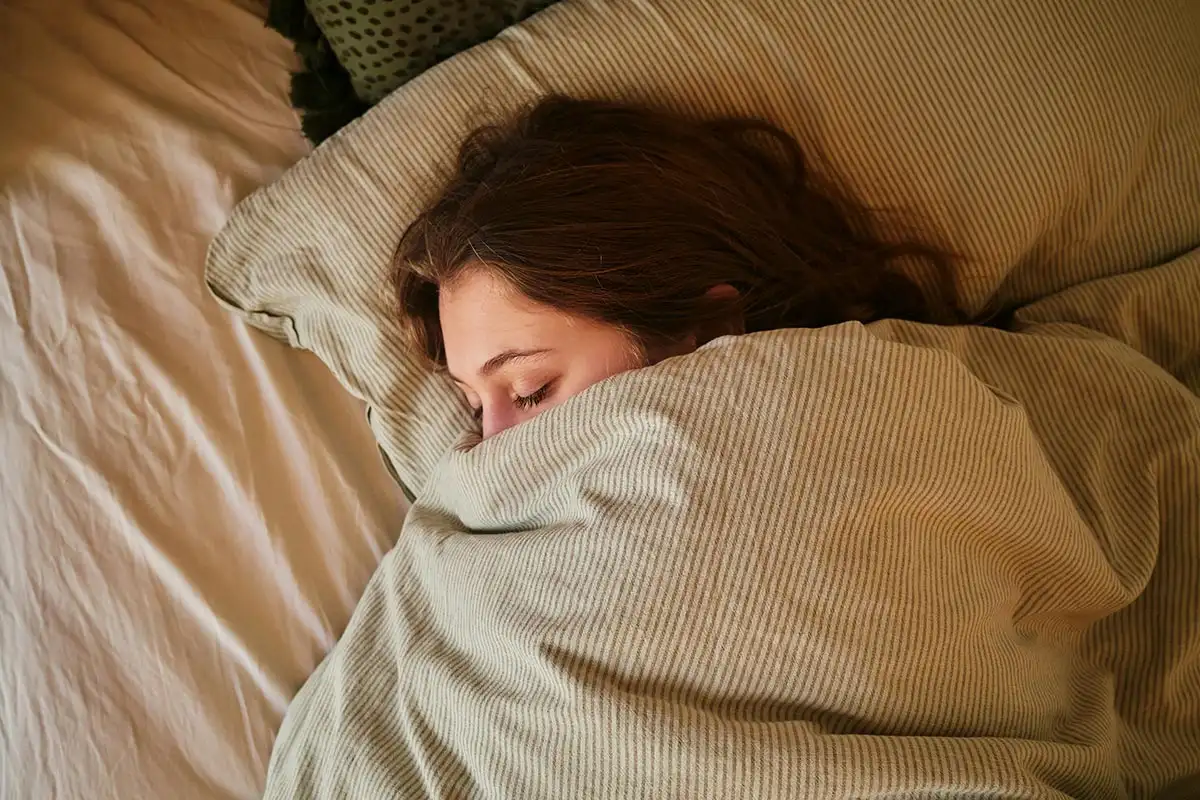 Depression is a normal fact of life for many of us. In fact, today, an estimated 21.5 million people experienced a major depressive episode or depression in the last year. For most of us, the age of mental health disorder onset is between 12 and 18, with 4.5 million youth aged 12-17 also experiencing depressive episodes in the same year. But, depression is highest for young adults, aged 18-25, with 6 million individuals, or 17.5% of all people of that age category. This means that young adults are especially vulnerable to depression.
Depression is a normal fact of life for many of us. In fact, today, an estimated 21.5 million people experienced a major depressive episode or depression in the last year. For most of us, the age of mental health disorder onset is between 12 and 18, with 4.5 million youth aged 12-17 also experiencing depressive episodes in the same year. But, depression is highest for young adults, aged 18-25, with 6 million individuals, or 17.5% of all people of that age category. This means that young adults are especially vulnerable to depression.
While this relates to a large number of factors including high workloads, uncertain futures, covid-19 disruption, economic uncertainty, genetics, and social pressure – our youngest adults are also our most vulnerable. If you suspect that a young adult in your life is struggling, it’s important to pay attention, to make spaces to talk, and to look into getting help together.
The following 10 signs of depression in young adults will get you started.
Persistent Sadness or Low Mood
Prolonged sadness, low mood, or apathy are a core symptom of depression and are present in almost all people with depression. This might result in a young adult experiencing prolonged low mood or being bummed out for long periods of time.
What it looks like: Feeling down or persistent low mood can be difficult to spot from the outside so often, you’ll have to talk to your loved one. They also might not have words to say, “My mood is low” or “I’m just bummed out all the time” or “I feel depressed” and might instead say things like “I just feel off” “I’m having a bad month” or “I just don’t have any energy”. Especially for men, talking about mental health tends to be translated into physical symptoms, which can make it harder to figure out what’s going on.
Loss of Interest in Activities
Anhedonia, or loss of interest in things you previously enjoyed, is one of the most common symptoms of depression. Often, this means that you’re struggling with your brain regulating the uptake of serotonin and dopamine, meaning you simply don’t experience things like you used to. For example, instead of feeling excitement and interest in doing something you just feel nothing and after doing something, you also feel nothing because you’re not getting the reward of feeling good about interactions.
What it looks like: Young adults experiencing anhedonia might withdraw and stop doing things. They might drop out of sports or chess clubs, they might spend less time with family, they might do less with partners. Instead, they’ll likely dump time into high-reward/low-energy activities like phone games, alcohol or drugs, or binging food/sugary drinks.
Sleep Disturbances
People struggling with depression are very likely to have problems with sleeping, which can mean sleeping too much or not enough. In young adults, this most frequently results in sleeping too much paired with difficulty falling asleep. Often that results from sleeping too late, being tired all day, and then staying up too late in an attempt to regain control over the day – resulting in a negative reinforcing pattern of poor sleep. In addition, poor sleep worsens depression by disrupting rhythms and disrupting the brain’s ability to heal.
What it looks like: Young adults with depression are very likely to sleep in and have trouble waking up, which can result in missed classes, being late for work, and all-day fatigue. At the same time, they are unlikely to go to bed on time and are instead more likely to take frequent naps or to fall asleep in vehicles. Still, they will be tired even if they go to bed on time and get the right amount of sleep.
 Changes in Appetite or Weight
Changes in Appetite or Weight
Significant changes in appetite or weight are always a sign that something is wrong. If someone is losing or gaining a lot of weight without changing diet, it can be a symptom of both physical and mental health problems so it’s important to go to a doctor. Changes in appetite can also be a red flag, as young adults with depression may avoid food and lose too much weight because they aren’t experiencing enough reward from it or may turn to high sugar and fat foods to binge on in an attempt to feel good.
What it looks like: If a young adult is suddenly losing or gaining weight, it’s a cause for concern. Weight loss is more concerning than weight gain, because it can stress the organs and cause more problems. However, disinterest or over interest in food are both a sign that something is wrong, and you should talk to a doctor about it.
Fatigue or Lack of Energy
Chronic fatigue, even after sleeping enough, is a very normal symptom of depression. Young adults with a healthy sleeping schedule may still feel chronically fatigued and may sleep for seemingly absurd amounts of time. This is linked to the way depression disturbs the body’s inflammatory responses, meaning your young adult is experiencing the same fatigue as if they had a cold or hay fever – but all the time.
What it Looks Like: Your young adult may be lethargic, may take naps frequently, and may drop responsibilities. They might not do things like taking out the trash or helping around the house. They might start missing work or class because they’re sleeping too late. Tasks like picking up medication, doing assignments for college, or doing chores around the house might seem monumental because they are tired all the time and so simply might not happen.
Difficulty Concentrating
People struggling with depression can experience life as if they are walking around in a fog. Concentration and focus-oriented tasks can become extremely difficult. This makes sense because depression actually impairs cognitive functioning and can slow down processing and can result in actual impairments to the brain.
What it looks like: Your young adult may show symptoms of depression by having no attention span. They might not pay attention when you’re talking, they might lose focus in the middle of a conversation, they might leave tasks half-finished. Alternatively, they might struggle with making choices, experience executive dysfunction, and may lack the attention to complete longer tasks well.
Feelings of Worthlessness or Guilt
Feelings of worthlessness and guilt are hallmarks of depression. This is often a self-reinforcing cycle of feeling excessive guilt and low self-esteem coupled with fatigue and executive dysfunction. These in turn, exacerbate each other, which can be difficult to treat or to manage.
What it looks like: Young adults are not known for self-esteem, but excessive self-blame, low self-esteem, and guilt are signs that something is wrong. If your young adult jumps to “I always fail”, “People are better off without me”, “this is terrible because of me”, it’s a sign that they are struggling with self-esteem.
Irritability or Anger
Irritability and anger are extremely common symptoms of depression. Here, depression is heavily linked to both episodic and chronic irritability, where a young adult may experience spikes of being irritable or cranky or might be irritable as a common standard. This happens because of a symptom known as severe mood dysregulation, in which the person with depression loses control of and insight into their moods.
What it looks like: Your young adult might snap or be irritable at slight provocations, like being interrupted from texting to be asked if they want dinner. They might have mood swings and unpredictable outbursts or moods. They might behave as though they are cranky or annoyed as a standard.
Physical Aches and Pains
Depression heavily interacts with the immune system, which means that depression can result in physical pain including headaches, stomach issues, and general malaise. Your young adult may experience life as though they have a cold or flu all the time.
What it looks like: Your young adult may frequently have stomach pain and diarrhea. They might also complain of aches and pains. And, they are very likely to have a headache as a normal thing. Here, they might say nothing, but you’ll see increases in acetaminophen or other painkiller use, changes in how they eat, and will hear more frequent complaints.
Thoughts of Death or Suicide
Suicidal ideation is one of the most serious symptoms of depression, but it affects 12.2% of young adults. Untreated depression is also one of the most common causes of suicidal ideation, meaning that suicidal ideation is a very common symptom of depression.
What it looks like: Most people don’t talk about thinking about suicide or death. However, they might let things slip by accident, they might google ways to kill themselves, they might text with friends about it. If you see things like this, it’s important to talk about it, even if it seems like it might be a bad joke.
Young adults struggle with depression more than any other generation. If someone in your life is struggling, it’s important to make space to talk, to offer help, and to work towards going to a doctor, looking for treatment, and finding professional help. Depression impacts 17.5% of all young adults but mental health treatment and therapy will help and can improve quality of life and your future – even when depression is chronic.























